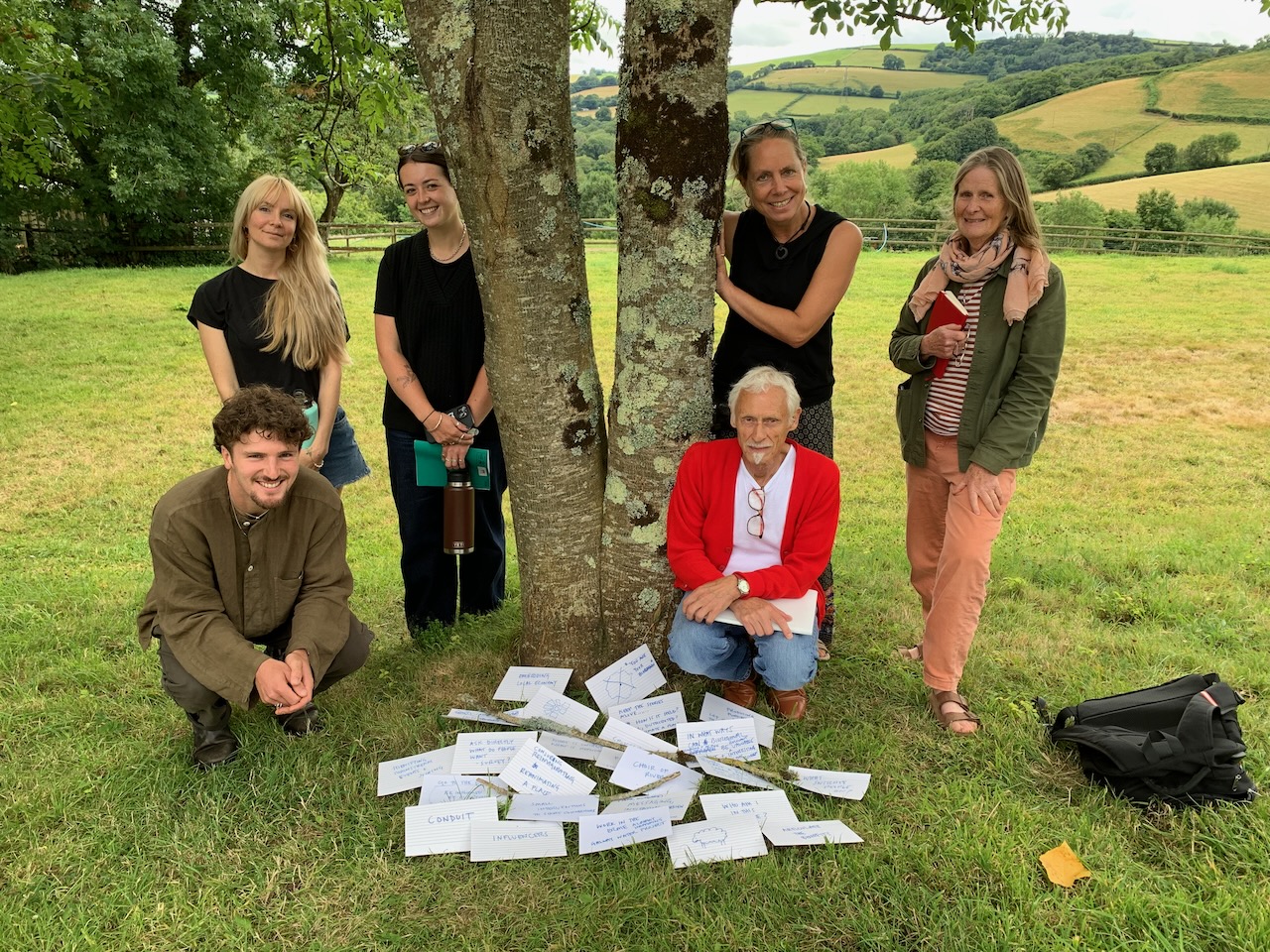Learning Opportunity
Bioregional Learning Days 2026
Plan ahead! Join us next year in person to explore the practice of bioregioning with a cohort of fellow learners in the great outdoors. Learn by doing and find out how a place can become a beacon for bioregional revitalisation.

Sense, discover & design your bioregion
Feedback from a 2025 participant:
"It gave me a clearer, richer and broader understanding of what Bioregionalism is... Hearing real life examples of Bioregioning practice. Grateful for the generous and honest sharing.... Discovering from real people (not just websites) how folk have gone about Bioregioning in their places, and being assured that it's messy and creative and lots of us are doing some of it in some ways... part of the work is joining people and work up."
Next year, in 2026, we will be running Bioregional Learning Days in the SUMMER and in the AUTUMN. Both residential courses will be based at Lower Sharpham Barton Farm, home to Ambios, a working farm 'for nature, conservation and training', overlooking the beautiful River Dart. We are currently designing the programme and firming up exact dates within these windows: Monday 13th to Saturday 18thJuly and Monday 7th to Saturday 12th September, 2026.
If you are looking for a short course lovingly put together by a leading team of bioregional practitioners, this South Devon experience is for you–whether you're just setting out or already on your regenerative path. The BLC team and guests will bring their experience with forming new structures for future resilience, restoring ecosystems, sensing into a place, communicating other ways of seeing and doing, and measuring bioregional health. Incorporating 2025 participant feedback (thank you!), 2026 promises to offer an even more collaborative, immersive journey into the heart of bioregional practice, where conviviality and eating well are taken seriously! Have a look at first autumnal Bioregional Banquet.
Places are limited and there may be 'drop-in' tickets available in addition to residential. Exact dates in 2026 to be announced.


